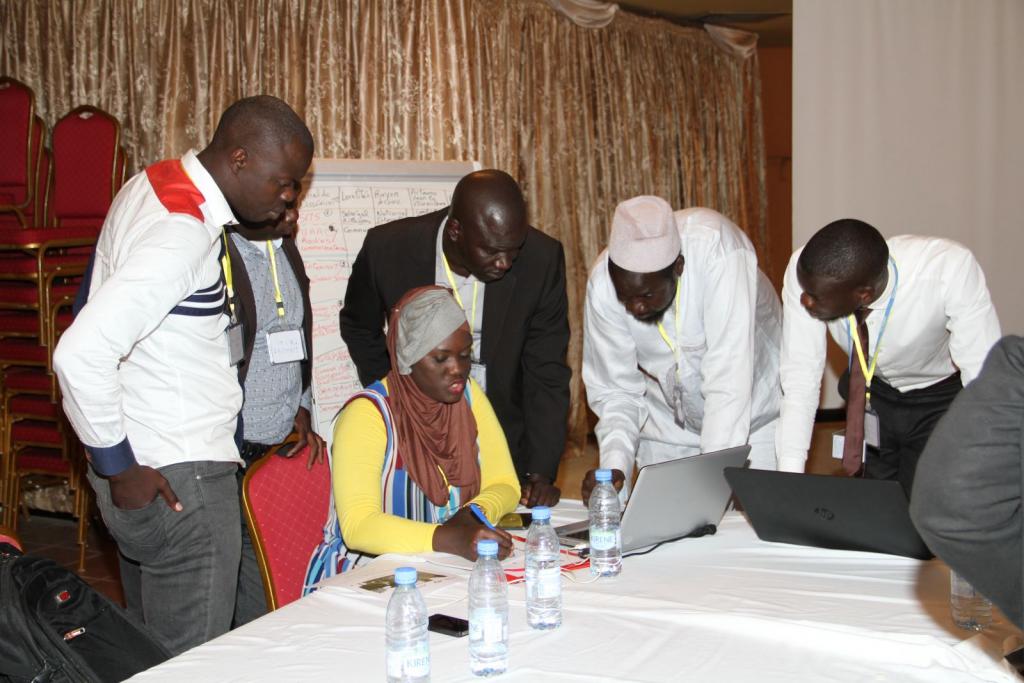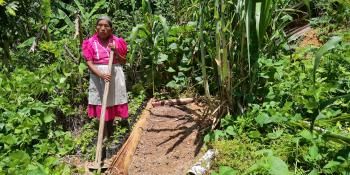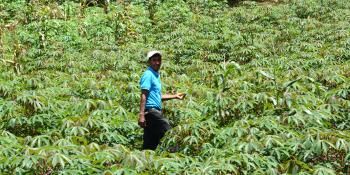Scaling out useful climate services for increased resilience and productivity in Senegal

New climate services project sets out to improve the livelihood, resilience and farm productivity of beneficiaries whose activities are dependent on climate.
In Senegal, just like other African countries, agriculture is exposed to serious threats from climate change. The country’s agriculture is heavily dependent on rainfall; only seven percent of cultivated land is irrigated. Climate information services (CIS) therefore remains a powerful tool in helping farmers increase resilience and productivity.
On 19 and 20 April 2016, 60 climate services stakeholders from Senegal and Mali met in Dakar to launch a new project, called 'Climate information services for increased resilience and productivity in Senegal' (CINSERE), funded by the United States Agency for International Development (USAID). The workshop was co-organized by the CGIAR Research Program on Climate Change, Agriculture and Food Security (CCAFS) West Africa together with Agence Nationale de l'Aviation Civile et de la Météorologie (ANACIM). Presiding over the launch, Director for Economic Growth, Mrs Anne Williams expressed appreciation to all stakeholders for attending the launch and talked about her expectations of the project.
The CINSERE project aims at developing and scaling out useful climate services to help improve the livelihood, resilience and farm productivity of beneficiaries whose activities are directly or indirectly related to climate. In particular, the project targets beneficiaries of the 'Feed the Future (FtF)' project (Naatal Mbay, Yajeenda, COMFISH and ERA). New methods and technologies (including interactive voice messages, USSD code, billing among others) are planned to be used for achieving these objectives, the impact of which will be assessed with an effective monitoring and evaluation plan. The three year project will be implemented by CCAFS, ANACIM and other partners.
CINSERE inception workshop participants hold discussions during the meeting. Photo: M. Dione. View more photos of the workshop.
Dr. Robert Zougmore, the Principal Investigator of the project, who is also the West Africa Program Leader of CCAFS, emphasized the urgent need for climate information — seasonal forecasts, wind direction, start of the rain — so farmers could be guided in making informed decisions and planning their activities to mitigate any climate-related risks. He gave examples from a related project earlier implemented in the region of Kaffrine, Senegal. Through the Kaffrine project, services provided by ANACIM have helped farmers synchronize their crop planting with the onset of the rainy season and acquire knowledge on the water requirement for planting, ensuring plants germinate without any drought stress problems. In fishing, fishermen are now informed early enough of the wind direction accompanied by an advice to go fishing or not via an SMS system developed jointly with ANACIM and the COMFISH project.
The CINSERE project will build on lessons from the Kaffrine project, which has led to a high demand for CIS by a large population of end users who are now conscious of the importance of climate information in different sectors, particularly in agriculture, livestock and fishery. Secondly, it builds on the successful outcomes achieved by the four USAID/Senegal FtF projects aimed at increasing the resilience and farm productivity of Senegalese farmers; strengthening the local fisheries, governance and sustainability sectors; and developing human and institutional capacity of agricultural education research and extension institutions.
Watch video: Putting climate information into farmers' hands
Workshop objectives
The workshop presented the objectives and expected results of the CINSERE project; the project brought together various stakeholders of climate services with the aim of collecting their climate information (CI) needs, identifying different channels through which those CIs could be disseminated as well as their strengths and weaknesses; it created a platform to agree on indicators for monitoring and evaluating the impacts of project implementation; and workshop participants adopted a work plan for the first year of the project.
The meeting ended with a presentation of the work plan by Dr. Ousmane Ndiaye, a Co-Principal Investigator of the Kaffrine project and a Climate Scientist at ANACIM. He confirmed that CINSERE activities will start by May 2016.
View workshop photos here.
Read more:
- Scaling up seasonal forecasts to over 7 million users in Senegal
- The impact of climate information services in Senegal
Blog by Andree Mentho Nenkam, Science Officer, CCAFS-CASCAID and Samuel Partey, Regional Science Officer, CCAFS West Africa. Both are based at ICRISAT in Bamako, Mali.



